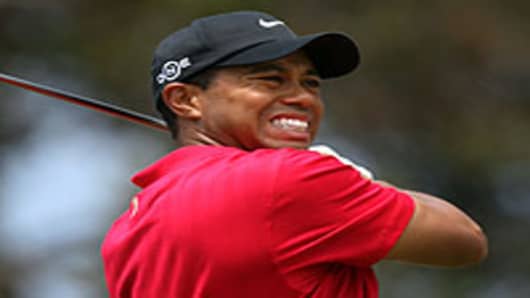I recently sat down with Adidas CEO Herbert Hainerto talk to him about the re-energizing of the Reebokbrand, the licensing business and the state of the sports and shoe apparel business.
Darren:You’ve spent a good deal of money on the NBA license. Reebok bought the NFL license before you bought them. What do you think about the licensing business in general.
Hainer:I think you have to, as a brand owner, have different ways to communicate to consumers to advertise. You advertise digitally, at retail, you use brand ambassadors who are individual players and you have licensing agreements with teams and leagues. Our NBA license is good because it connects our passion for basketball with fans of teams and the league. We just extended our deal with the MLS because we do believe that soccer in the country is gaining. Twenty five million people watched the World Cup final. Reebok hasn’t done as much as it could have done with the NFL before we came along.
Darren:The NFL license is up at the end of next year, but we’re supposed to find out before the end of this year who the apparel partner will be. Are you bidding as Adidas or Reebok?
Hainer:I can’t say which brand, but I can say that we have participated in the NFL’s open bidding process. We decided how much we were willing to pay. We think it’s reasonable and our intention is to try to keep the NFL as a property. But if somebody bids higher than us then we’ll accept that. We expect to hear by the end of October. We have very strong league relationships. So if we lose the NFL, it won’t make or break our company.
Darren:According to some market share numbers, Li-Ning has passed you as the number two company in China behind Nike. What happened?
Hainer:I saw numbers three weeks ago that reflected that our market share is still number two. We did have our issues in China. We had too much inventory and there were select retailers that we trusted that weren’t the best to be with. We have cleaned everything up, we’ll do more than $1 billion in sales and we continue to believe that China will be a growth engine for Adidas.”
Darren:You recently said that you believe that you will grow in the next year. Is that possible in a non-World Cup/Olympics year?
Hainer:Yes it is possible and we’ll do it first and foremost by continuing to bring product concepts to life. Our business is sold six months in advance, so I know how we’re doing and it’s quite encouraging. If you look back in our history, 2003, 2005, 2007 — the in-between years when there isn’t a World Cup or Olympics — we’ve focused on product concepts and technologies more in those years and it has driven market share. So I have no doubt that 2011 is a growth year.
Darren:How good was the World Cup for you?
Hainer: We felt like we obviously were the most visible brand out there with our Jubilani ball and the fact that we had more teams, 12, than anyone. Nike’scampaign was “Write the Future,” but most of their players disappeared and our team (Spain) won. And we were proud of our F50 boot since most goals were scored by players wearing them. Our football (soccer) business is now a $2 billion business.”




